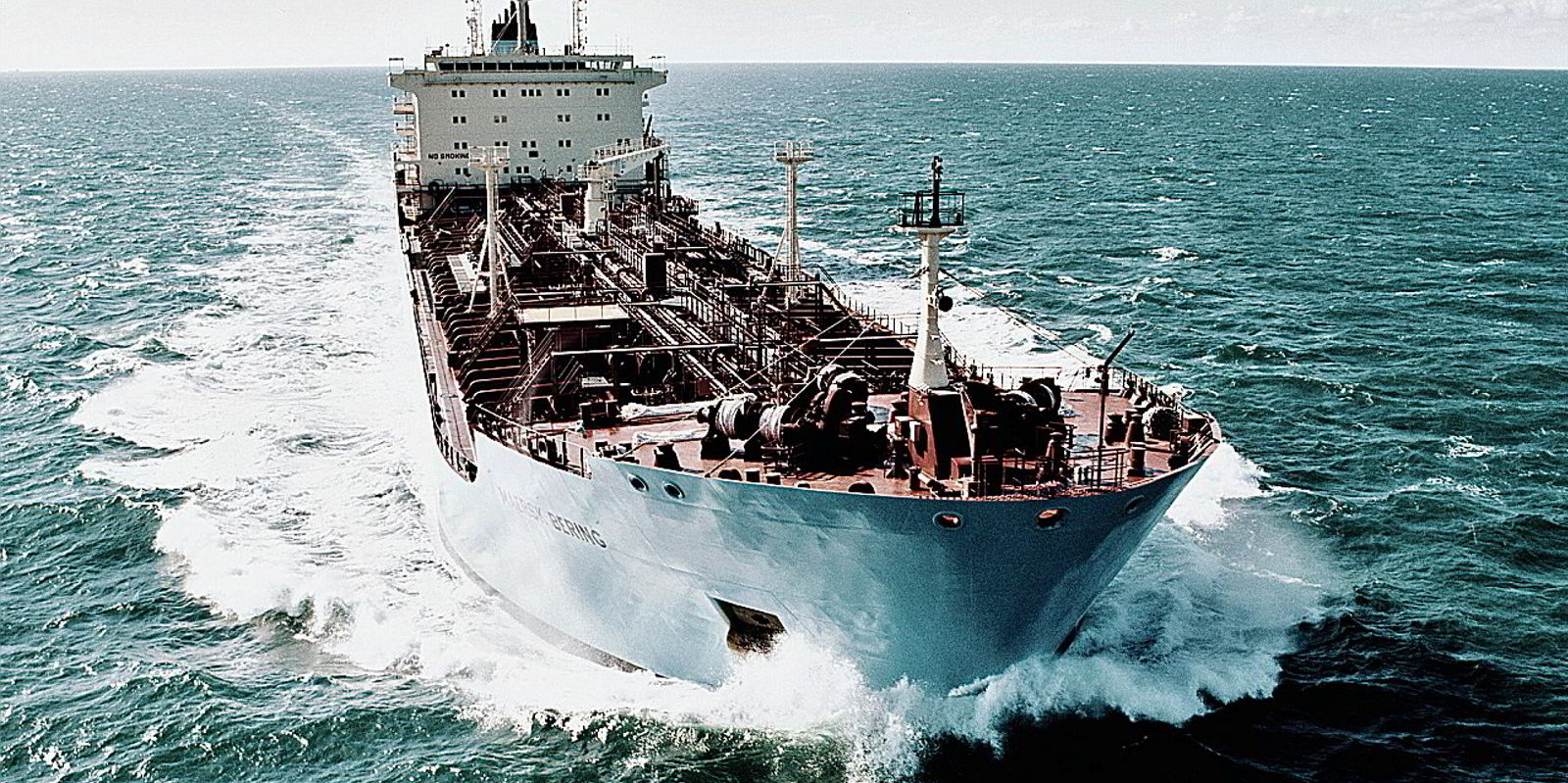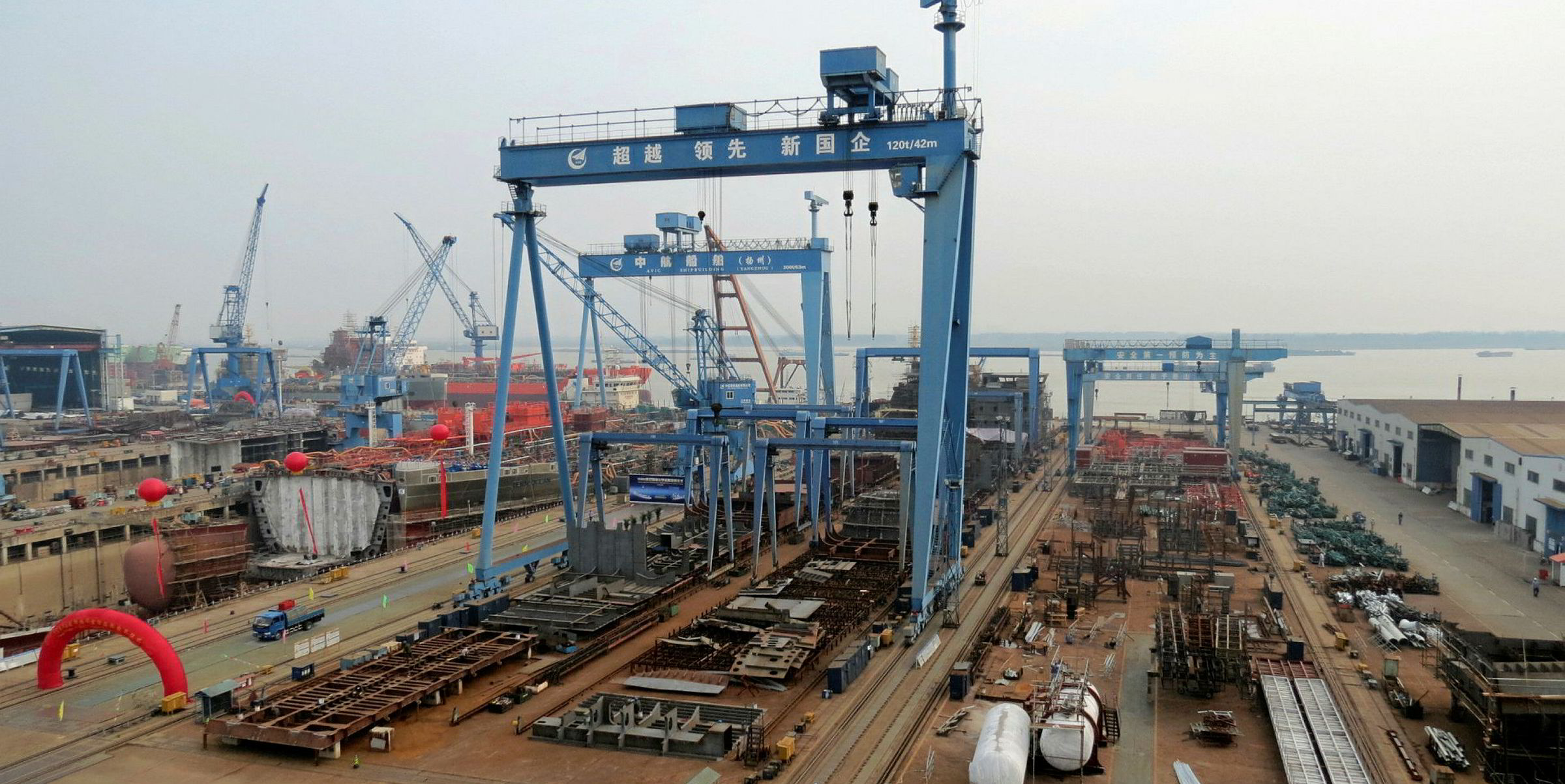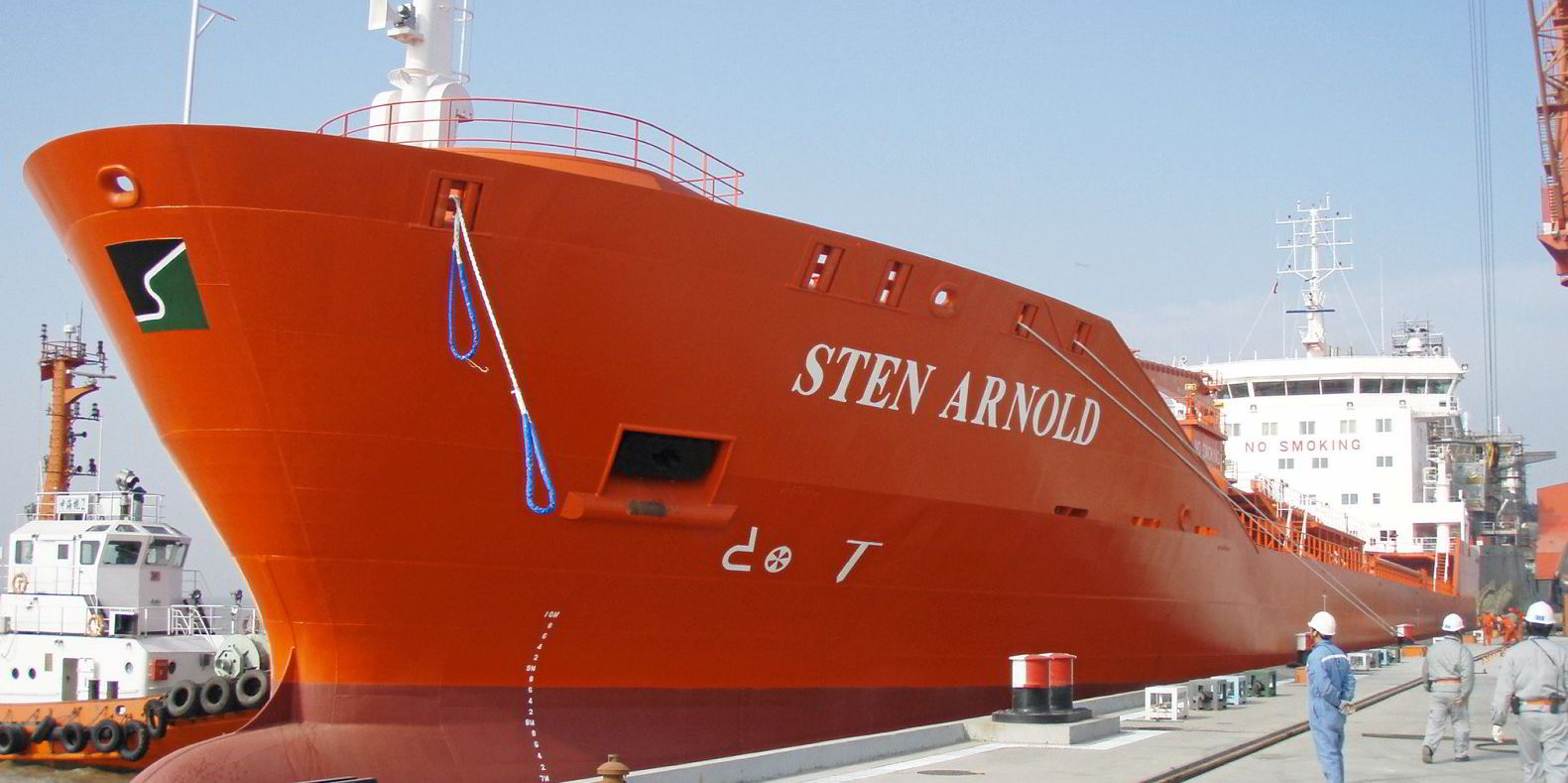Maersk Product Tankers has sold four of its remaining Brostrom Shipping product tankers to Bergen-based Rederiet Stenersen.
No price has been announced on the sale of the 16,400-dwt Bro Nakskov, 16,500-dwt Bro Nibe and Bro Nordby, and 16,600-dwt Bro Nyborg (all built 2007), which VesselsValue estimates as worth $31.55m.
The Copenhagen-based seller confirmed the deal but told TradeWinds that it is not giving up on plans to expand in the under 20,000-dwt segment — as commercial manager, at least.
The Bergen-based buyer has a different view on the competitive situation.
Family-owned Rederiet Stenersen told Norwegian business daily Finansavisen that the purchase had positive effects for his company.
Sigve Stenersen, finance and commercial director at the company, told the newspaper: “The purchase of these ships entails that Brostrom is phased out as a serious competitor in our segment.”
Stenersen added to TradeWinds: “Commercially, we think this transaction make sense. The market is improving and, with very limited newbuildings on order, we find the next five to eight years very interesting.”
Brostrom still exists on paper as a subsidiary of Maersk Product Tankers parent AP Moller Holdings. In the intermediate tanker segment, Stenersen implied that its market presence has still been felt.
“The fact that we are consolidating the market even further might give an extra boost to the freight rates,” he told TradeWinds.
Stenersen is untroubled about investing in vintage steel.
“The vessels are for sure at a certain age, but they are ice 1A and built at a very high standard and specification,” he said. “Technically, they are good for at least 35 years trading.”
Rederiet Stenersen owns a fleet of 16 ships of between 13,000 and 19,000 dwt trading in northern Europe, not counting the latest transaction. Of these, 13 are sisterships or near sisterships of the four Chinese-built vessels being acquired from Maersk Product Tankers.
Stenersen told the Norwegian newspaper that the new vessels will join in June and July, with two of them doing so after dry-docking.
Figures for 2020 — the most recent period for which figures are available — show Rederiet Stenersen with a strong cash position and modest leverage thanks to the sale of two ships to charterer Neste in late 2020, as previously reported by TradeWinds.
Finansavisen reports that the four vessels now being acquired are financed through unnamed Chinese leasing houses.
The sale leaves the Maersk Intermediate Pool with only four more Maersk Product Tankers-owned vessels, all dating from its acquisition of Brostrom 14 years ago.
AP Moller Maersk bought Swedish product tanker rival Brostrom in 2008 for SEK 3.62bn —then worth some $567m — but it disposed of the smaller segments of the former Brostrom fleet over the next several years.
AP Moller Holdings-owned commercial product tanker operator Maersk Tankers responded to an enquiry from TradeWinds by declaring its intentions to grow as an operator in the sector.
But shipowner Maersk Product Tankers — a separate entity owned by AP Moller Holdings and Mitsui & Co — was less definite.
The two companies, which have the same management, responded through the same spokesman.
“As a commercial manager, Maersk Tankers has an ambitious growth strategy, as part of which we are looking to grow our pools across segments,” the spokesman told TradeWinds in a prepared statement. “This includes our Intermediate Pool, where we, despite tough markets in 2021, delivered strong earnings for our partners. Today, we manage 21 vessels for five owners in the Intermediate Pool.”
However, speaking for Maersk Product Tankers, the same spokesman said: “The company has a strategy of continually adjusting the fleet size and composition across its segments to generate financial returns for investors and keep exposure in line with market developments.”
Ships of between 16,000 and 20,000 dwt trade in the Intermediate Pool.
Since the split from owner Maersk Products Tankers in 2017, Maersk Tankers has increasingly emphasised its commercial operations whether for third-party or related owners. It made headlines last year by getting even further away from steel with its sale of its technical shipmanagement operations to Synergy Marine.
Chief executive Christian Ingerslev told TradeWinds earlier this year that Maersk Tankers aims to operate 300 ships by 2024 — and the total is currently over 230 ships, according to the Maersk Tankers website.
Shipowning entity Maersk Product Tankers claimed 61 owned ships as of the end of last year, while VesselsValue currently credits it with 52.





